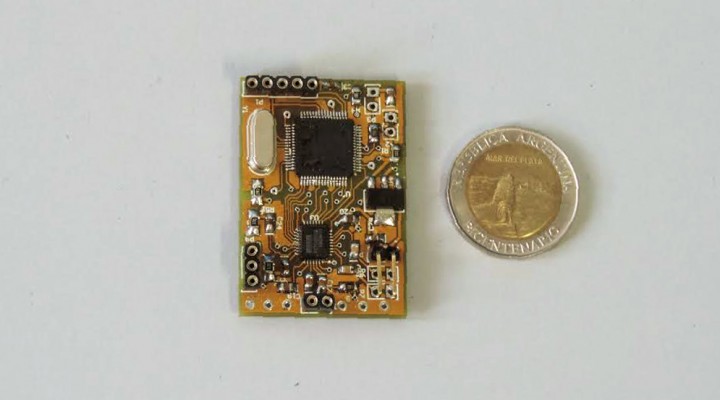Computer Sciences and Communications
Scientists at the CONICET developed the first programmable digital hearing-aid of Argentina
It is made in Argentina and can be reprogrammed according to user’s needs.
A group of CONICET researchers at the Laboratorio de Comunicaciones de la Facultad de Ingeniería de Mar del Plata [Communications Laboratory of the Faculty of Engineering of Mar del Plata] developed the first programmable digital hearing-aid that allows people with hearing disabilities to improve their quality of life.
This is about a low cost assistive listening device that is produced in the country and comprises the most important functions of this type of devices. The project is led by Jorge Castiñeira Moreira, CONICET associate researcher and it was carried out by Alejandro Uriz, PhD in Electronics and CONICET postdoctoral fellow, as part of his doctoral thesis. Uriz decided to conduct a study to meet a specific need of the population in the country.
Through a study made of specific questions that were included in the 2010 National Survey, it was possible to detect that in Argentina, around 300.000 people live with hearing disabilities and in most of the cases, an economical accessible solution is not available. For Uriz, “digital hearing-aids are very expensive and they are imported.” Currently, the cost of a hearing-aid is around USD$3.000 and USD$5.000, and most health insurance companies do not cover it. This team protects what is basic and has the characteristics of the best implemented hearing aid as well as a technology developed in Mar del Plata.” In general terms, the WHO (World Health Organization) considers that approximately 1.100 millions of young people in the world could suffer hearing loss due to continuous exposure to noises that are part of our daily habits.
For the development of this hearing-aid researchers have studied in detail the functions of the audibility extender and tinnitus treatment. “The hearing extender allows a person to hear what he or she would not be able to hear without the hearing-aid. That is to say, it takes all the information available on the area where the ear does not work and takes it to an area where the person hears better”, Uriz explains.
Tinnitus is the perception of noises in the ear that do not correspond with any acoustic signal in the environment. It is often described as a buzz, a beep, a noise and can be experienced by one ear, both and in the head (with or without the perception of the sound in the ears). Several patients link the onset of the disorder to a sound trauma due to high volume sound exposure, which ranges from sounds in the workplace to the constant use of electronic devices such as music players and cell phones.
This first programmable digital hearing-aid has been developed to offer a national alternative to the people who live with hearing disabilities and need technological help to improve their quality of life. “This is a technique that covers up the beep that the person hears and reduces its perception, without preventing the patient from hearing other things”, Uriz affirms.
The hearing-aid has five commercial microcontrollers so that in case of having some failure, it can be repaired thus avoding its disposal. Furthermore, “one interesting aspect is that it can be load it with the hearing-aid battery or with batteries so if you run out of battery one weekend, and you cannot get them, you can replace it by ordinary batteries. The idea is to have a device that considers this type of situations”, Uriz stated.
It can also be programmed through a computer and reprogrammed according to the needs and changes of the auditory conditions of the person who experiments with it throughout his or her life. The advantage of being digital and programmable is that “the expert can adapt it to the needs and conditions of the person”, Castiñeira added.
This project was the winner of one of the 2013 INNOVAR contest, organized by the Ministry of Science, Technology and Productive Innovation, in the Applied Research’s category. Furthermore, the team received a grant from the Secretaría de Políticas Universitarias (SPU) of the Education Ministry. “With the grant provided by the SPU we bought machines to produce it at a small scale, but we are considering an agreement with some company to produce it commercially”, Uriz affirmed.
The programmable digital hearing-aid has been patented and the Technology Transfer Office of CONICET Mar del Plata is working in the technology transference process, looking for companies interested in producing it or obtaining the patent. Scientists expect to conduct the clinical trials in mid-2016 to carry out the last part of this project.
By Sabrina Aguilera and Paula Belmonte. CCT Mar del Plata.
About the research:
Jorge Castiñeira Moreira.Associate researcher. UNMdP.
Alejandro Uriz. Post-doctoral fellow. UNMdP.
Pablo Agüero. UNMdP.
Juan Carlos Tulli. UNMdP.
Francisco Denk. INVAP.
